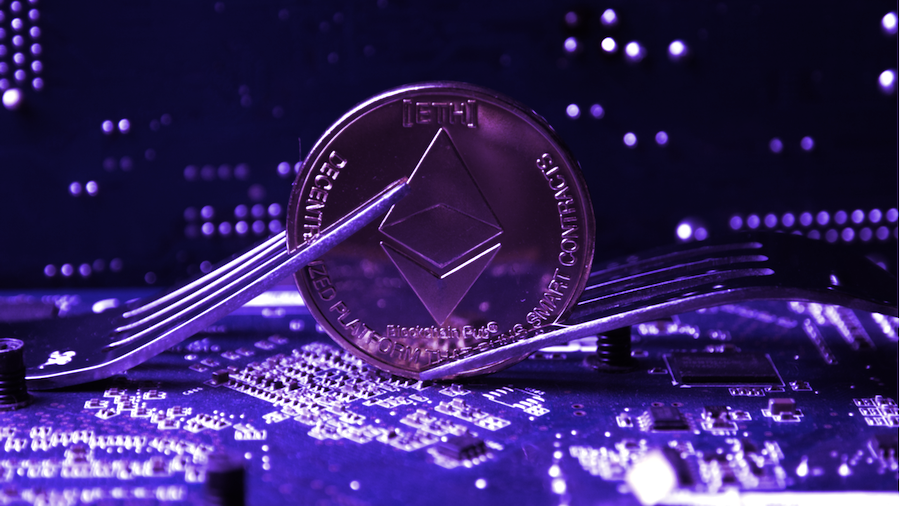Berlin Hard Fork Goes Live, Promises to Reduce Sky-High ETH Fees
3 min readDemand for ETH network is spiking as people rush to use the platform—even as the network lacks the capacity to quickly process their transactions. The result: average gas fees on the ETH blockchain set a record in February as people pay ever-higher premiums to get their transactions through.
But help is on the way. The so-called Berlin hard fork, which took place when the network hit block number 12,244,000, should bring transaction fees down at least slightly.
Berlin, named after the host city of the inaugural Devcon convention, is a network upgrade that makes changes to the ETH software. Anyone who runs an ETH node or mines ETH tokens should update their software client accordingly.
The Berlin upgrade will incorporate four ETH Improvement Proposals (EIPs), made by users and integrated into the blockchain’s code by core developers. These include EIP-2565, which reduces some gas costs (read: transaction fees) algorithmically, and EIP-2718, which allows people to combine their transactions.
Get ready! The Berlin network upgrade is coming soon.
See the post below to learn more about what's included and how to upgrade to the latest clients.https://t.co/oDKvMz33lt
— ETH (@ETH) March 8, 2021
The other two EIPS to be included both come from Martin Swende and ETH creator Vitalik Buterin. EIP-2929 actually increases gas costs in order to speed up processing times and limit denial-of-service attacks. However, these increases are partially balanced out by EIP-2930, a proposal that also helps reduce the risk of broken smart contracts.
What’s not included in Berlin is EIP-1559, the controversial proposal that will reduce the overall supply of ETH. At the moment, miners are somewhat in control of network fees; once EIP-1559 is incorporated into the blockchain’s software, the fees will be set by the network—then burned. Miners will continue to receive block rewards in the form of freshly minted ETH.
Several mining pools aren’t happy about the change, which could eat into their profits. We have until July’s London hard fork to see whether its proponents are right, and that the change will serve to boost the price of ETH enough to placate the miners.
ETH transaction fees, which hummed along at under $4 for most of the blockchain network’s lifespan, began rising late into last year’s “DeFi Summer,” when interest in blockchain-based financial services exploded. On February 23 of this year, average transaction fees went above $38. They’ve since cooled down to around half that.
That is both bad and good news for the second-largest blockchain network. On the one hand, it indicates that developers are building atop the network and people are interested in the applications there. On the other, the fees mean that every transaction—from sending funds to bidding on NFTs—must be timed to coincide with lower congestion.
ETH 2.0, the proof-of-stake network that’s in development should solve the gas fee problem almost altogether by creating shard chains. By working like side streets, the chains will remove congestion and make the network faster. By extension, fees should decrease as infrastructural supply increases.
Berlin won’t be as drastic an improvement, but it’ll be a start.






![Decentraland: Review & Beginner's Guide [current_date format=Y] 20 Decentraland: Review & Beginner's Guide](https://cryptheory.org/wp-content/uploads/2020/11/decentraland-02-gID_7-300x150.jpg)